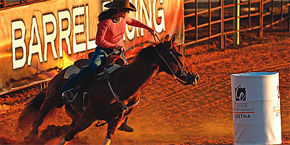Gambling Regulators Make Concession Impacting Poarch Creek’s Gretna Racing
July 30, 2015
Gambling regulators have backed down on a number of proposed changes to the state’s pari-mutuel rules after a legislative oversight panel and industry representatives challenged the Department of Business and Professional Regulations’ authority to issue the mandates.
 The agency’s Division of Pari-mutuel Wagering on Tuesday published the latest modifications, which deal with issues such as jockey requirements and track sizes. The division folded on a number of issues raised by industry operators at a hearing last week.
The agency’s Division of Pari-mutuel Wagering on Tuesday published the latest modifications, which deal with issues such as jockey requirements and track sizes. The division folded on a number of issues raised by industry operators at a hearing last week.
But the proposal may not go far enough to prevent legal challenges.
The proposed rule changes were originally published last month, but the revised version includes a number of concessions to the controversial barrel-racing industry. Gambling regulators in 2011 granted a pari-mutuel license to Gretna Racing in Gadsden County for the rodeo-style matches, which, in turn, allowed the facility open a more lucrative card room. An appeals court later ruled that the state erred in granting the barrel-racing license — the first of its kind in the nation. The state and Gretna Racing entered a settlement agreement authorizing “flag drop” races in which two riders compete against each other but without any obstacles in the arena.
Gretna is managed and operated by the Poarch Band of Creek Indians in Atmore..
Tuesday’s changes do away with a requirement in the original proposed rule that would have forced all tracks to have starting gates, an expensive addition that Donna Blanton, a lawyer for the association representing the barrel racers, at last week’s meeting said was too cumbersome.
The proposed rule would still ban obstacles, including barrels, on race courses.
Regulators also scrapped a proposed regulation that would have limited jockeys to 135 pounds, which also would have had an adverse impact on the rhinestone-studded barrel racers. Instead, Tuesday’s revised plan would require that jockey weights take into account “the humane treatment of the racing animal” and be published in the racing program.
The revision also eliminates a proposed requirement for “secured wagering” areas, which also could have affected the Gretna facility, where workers take bets from the window of a trailer located near the arena’s bleachers.
The latest version of the proposed rule also would make changes to the required lengths of horse tracks and lower the minimum number of entrants in a race from six to five, still more than the two riders that historically participated in the Gretna races.
And the new proposal also drops a potential requirement that tracks have “break-away rails,” something nearly all operators complained would be too costly and possibly dangerous for horses and jockeys.
Regulators also appear to have taken into consideration some of the objections regarding the publishing of horses’ qualifications.
The original proposal would have required that at least three published past performances were available to the public prior to a race.
That wouldn’t give bettors enough information, Tom Ventura, president of the Ocala Breeders’ Sales Company, said last week. Tracks or owners can “pick and choose” the data they want published, he said.
Tuesday’s amended proposal would require the track’s racing secretary to make available to the public a horse’s three most-recent published outings, whether in races or workouts, and include at least one from within the past 45 days.
by Dara Kam, The News Service of Florida



Comments